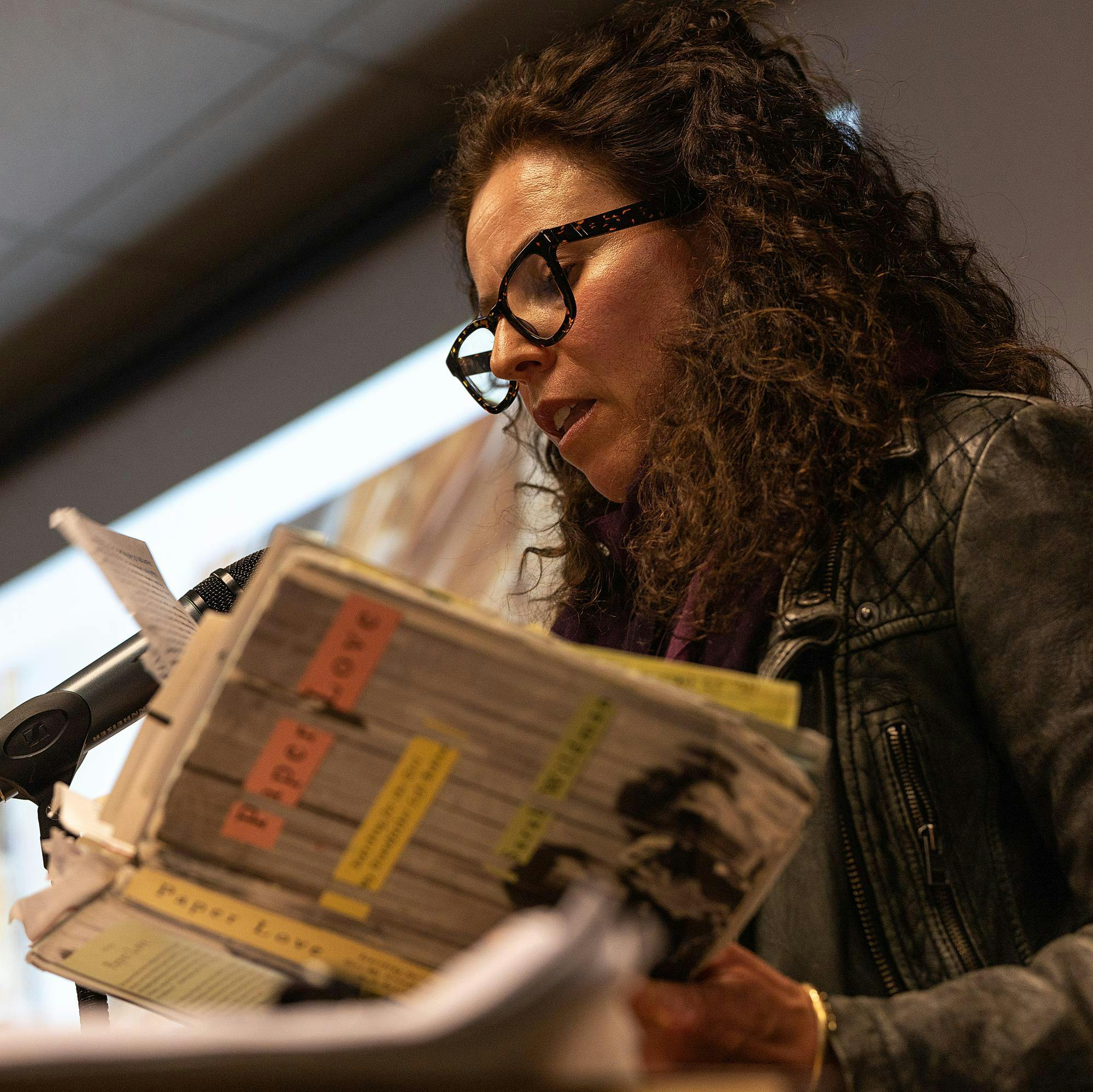Sarah Wildman, New York Times journalist and author of "Paper Love: Searching for the Girl My Grandfather Left Behind," spoke to students about the investigation into her grandfather’s past that led to her book's creation at Case Hall on Tuesday.
Wildman’s lecture served as this year’s Annual Rabin/Brill lecture, which is given in honor of Holocaust Remembrance Day.
Holocaust Remembrance Day, or Yom HaShoah in Hebrew, is observed from the evening of April 17 to the evening of April 18. This is the anniversary of the Warsaw Ghetto Uprising, the first significant uprising against German occupation in Europe in 1943.
“Paper Love: Searching for the Girl My Grandfather Left Behind” was inspired by letters Wildman found between her grandfather and a woman named Valerie Scheftel.
Wildman said it all began when she came across a cache of letters detailing correspondence between her grandfather and people that he had to leave behind when fleeing Vienna in the fall of 1938. Among the letters were "dozens and dozens and dozens from Valerie herself."
“Hundreds and hundreds of letters held together with rubber bands that no longer had any snap,” Wildman said. “Those letters contained all the people I had never thought about, all the people that weren't among the ‘essentials,' all the people that didn't leave with him.”
International relations and comparative politics freshman Alex Opalikhin said Wildman’s book shows the value of investigating into the past. His biggest takeaway from the lecture was the scope and significance of the erasure of millions of peoples' identities during the Holocaust.

“Something they mentioned was how there's 1 million undocumented people in terms of what their names were, who died,” Opalikhin said. “Who knows if their names will ever be found out, or if any information will ever be found out for them? I think it shows how even people who know they have this past within the Holocaust, it can be so difficult to find it and figure out what actually happened. It just says how much how much history was lost because of what happened.”
Wildman said that part of her book surrounds the re-examination of the story of her grandfather’s past through the lens of his correspondents, people who were previously unknown to her.
“Everything personal, every photograph, every notebook, every school paper, everything that identified them as being them. The Jews in these camps were told to burn them so that these people would be erased,” Wildman said. “And a lot of the book is about this kind of reexamining things I thought I knew.”

Audience filling seats at author Sarah Wildman's lecture about her novel Paper Love which explores the Holocaust through her own family's narrative at MSU on April 18, 2023.
Professor Amy Simon of the Holocaust Studies and Jewish History James Madison Department of Education said that each year the department aims to invite prominent speakers to share their wisdom with students. In previous years, the department invited the creator of the Berlin Holocaust Memorial, scholars in Holocaust-related studies and other lecturers to speak with students.
Simon hopes students connected to Wildman’s telling of her grandfather’s personal story and become more interested in individual narratives.
“Which is also what my work is about,” Simon said. “So, I feel a very personal connection to the type of research that she did in her book.”







